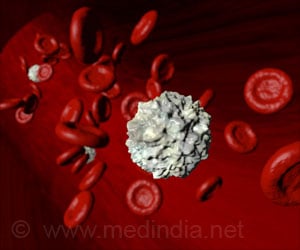Juice-only diets may disrupt gut health, causing inflammation, microbiome imbalances, and even cognitive decline.
- Juice-only diets can trigger inflammation and gut permeability changes
- Lack of fiber in juices promotes sugar-loving bacteria and impacts metabolism
- Unlike the gut microbiome, the oral microbiome undergoes dramatic changes on a juice-only diet
Effects of Vegetable and Fruit Juicing on Gut and Oral Microbiome Composition
Go to source).
During a juice cleanse, your body burns glycogen for energy, which can lead to water loss. #medindia #body #juice #energy’
Analysis of Juice-Only, Juice with Whole Foods, and Whole Plant-Based Diets
Northwestern scientists studied three groups of healthy adults. One group consumed only juice, another had juice with whole foods and a third ate only whole plant-based foods. Scientists collected saliva, cheek swabs and stool samples before, during and after the diets to analyze bacterial changes using gene-sequencing techniques.Impact of Juice-Only Diet on Inflammation and Gut Permeability
The juice-only group showed the most significant increase in bacteria associated with inflammation and gut permeability, while the plant-based whole food group saw more favorable microbial changes. The juice plus food group had some bacterial shifts but less severe than the juice-only group. These findings suggest that juicing without fiber may disrupt the microbiome, potentially leading to long-term health consequences.“Consuming large amounts of juice with little fiber may lead to microbiome imbalances that could have negative consequences, such as inflammation and reduced gut health,” Ring said.
Lack of Fiber Promotes Sugar-Loving Harmful Bacteria
Juicing strips away much of the fiber in whole fruits and vegetables, which feeds beneficial bacteria that produce anti-inflammatory compounds such as butyrate. Without fiber, sugar-loving bacteria can multiply. The high sugar content in juice further fuels these harmful bacteria, disrupting the gut and oral microbiome. The study also suggests that reduced fiber intake may impact metabolism, immunity and even mental health.Unlike the gut microbiota, which remained relatively stable, the oral microbiome showed dramatic changes during the juice-only diet. Scientists found a reduction in beneficial Firmicutes bacteria and an increase in Proteobacteria, a bacterial group associated with inflammation.
“This highlights how quickly dietary choices can influence health-related bacterial populations,” said Ring. “The oral microbiome appears to be a rapid barometer of dietary impact.”
The findings underscore the need for more research on how juice and other diets impact the microbiome, especially in children, who often consume juice as a fruit substitute.
How Harmful Bacteria Contribute to Memory Decline
Juice-exclusive diet can contribute to cognitive decline by promoting the growth of harmful bacteria linked to memory problems and anxiety. For example, an overrepresentation of certain bacteria, like those from the Porphyromonadaceae family, has been shown to increase the risk of neurodegenerative disorders. Additionally, a reduction in beneficial bacteria, such as Lachnospiraceae, which has been associated with cognitive health, could further worsen these effects.Impact of Sugar and Carbohydrates on Microbial Balance
“The nutritional composition of juice diets — specifically their sugar and carbohydrate levels — plays a key role in shaping microbial dynamics in both the gut and oral cavity and should be carefully considered,” said first author Maria Luisa Savo Sardaro, a research associate in the Amato Lab at the department of anthropology at Northwestern University and a professor of food microbiology at San Raffaele University in Rome.This study highlights the importance of prioritizing fiber in dietary guidelines and food production. For now, Ring says, “If you love juicing, consider blending instead to keep the fiber intact, or pair juices with whole foods to balance the impact on your microbiome.”
Reference:
- Effects of Vegetable and Fruit Juicing on Gut and Oral Microbiome Composition - (https://www.mdpi.com/2072-6643/17/3/458)
Source-Medindia















